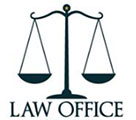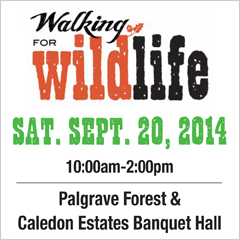Our primary goal is to connect people who have found injured or orphaned wild animals with those who can look after them and get them back into the wilds. Through a network of rehabilitators (government word for people who help wild animals) and wildlife rescue centres across Ontario we try to save as may wild animals as possible.

The first 24 to 48 hours after a wild animal is found is the most critical. They usually have been without food or water for a while and are confused and afraid. Connecting with a wildlife professional quickly can save their life. Use this site to locate a wildlife rescue centre in your area or a centre that specializes in a particular species.
Caution: Humane Societies and Animal Control are not licensed to look after wildlife. If you take a wild animal to them they may put it down. Ask First!
The second goal of Ontario Wildlife Rescue is to help raise money for wildlife rescue centres across Ontario. Rehabilitation and wildlife rescue centre’s are not government funded in Ontario. They are completely dependent on donations and the public support. The smaller centres in particular do not have fundraising systems and spend most of their time and resources looking after animals. For them, even a few dollars can make all the difference. Click on the donate button to help wildlife rescue centres.

The fund has been established to help new wildlife rescue centres start up. Donations will be used to for initial training and expenses in their first year.
Renowned Muskoka Wildlife Advocate and founder of Aspen Valley Wildlife Sanctuary in Rosseau, Ontario, Audrey Irene Tournay, 89, passed away peacefully on November 29, 2019, in Parry Sound, Ontario. Audrey dedicated herself to wildlife rehabilitation full time. Her 460 acre homestead property became the registered charity Aspen Valley Wildlife Sanctuary in 1987 and continues to operate to this day. For her contributions to wildlife rehabilitation and education, Audrey received the Animal Action Award from the International Fund of Animal Welfare and also the Paul Harris Fellowship Award from the Rotary Club of Parry Sound. She retired in 2010, leaving behind a tremendous legacy in the countless thousands of orphaned and injured wildlife that were given a second chance through her kindness and dedication.
Lawyers for Wildlife.

Wildlife Rescue Centers are up against conflicting provincial laws and local governments that do not want Wildlife Rescue Centers in Their back yard. We have lost almost 75% of the Wildlife Rescue Centers in Ontario. Wildlife Rescue needs legal help to keep going and they operate on a shoe string. If you can help please email Sandy@ontariowildliferescue.ca.


Wild pigs are not native too Ontario and can have a negative impact on native wildlife and ecosystems. They have high reproductive rate and spread rapidly, making their impacts severe. Impacts to the natural environment include: preying upon native plants and wildlife, competing with native wildlife for food, water, and space, trampling and wallowing, causing erosion, impact water quality, and spreading disease to native wildlife. If you see a wild pig (dead or alive), please report it to: Ministry of Natural Resources Wild Pig Monitoring team, at wildpigs@ontario.ca phone 1-833-933-2355.
New cases of raccoon strain rabies have been confirmed in the Hamilton area. These are the first cases in Ontario since 2005.
The Ontario government is working closely with local public health units and municipal governments, as well as animal shelters, licensed wildlife trappers, wildlife custodians and animal control services, to manage rabies in wildlife.
In response to confirmed cases of rabies, as well as part of planned operations, the Ontario government distributes baits for foxes, raccoons and skunks to eat. The bait contains a small package filled with a rabies vaccine that is absorbed through the lining of the mouth. This is called oral rabies vaccination.
In December 2015, rabies vaccine baiting took place in response to the positive raccoon rabies cases in the Hamilton area.










